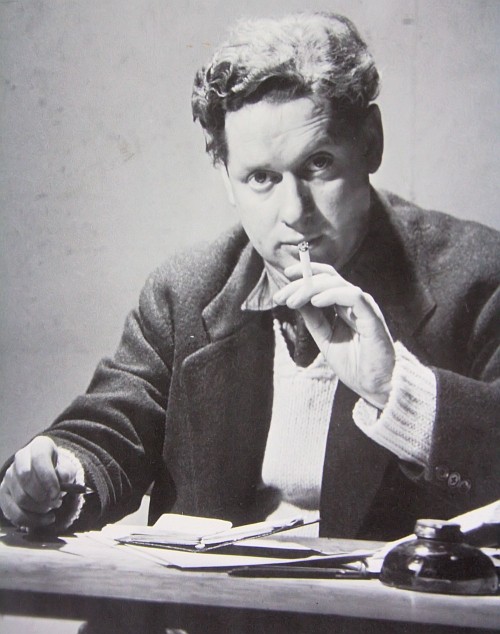Do not go gentle into that good night
Do not go gentle into that good night,
Old age should burn and rave at close of day;
Rage, rage against the dying of the light.
Though wise men at their end know dark is right,
Because their words had forked no lightning they
Do not go gentle into that good night.
Good men, the last wave by, crying how bright
Their frail deeds might have danced in a green bay,
Rage, rage against the dying of the light.
Wild men who caught and sang the sun in flight,
And learn, too late, they grieved it on its way,
Do not go gentle into that good night.
Grave men, near death, who see with blinding sight
Blind eyes could blaze like meteors and be gay,
Rage, rage against the dying of the light.
And you, my father, there on the sad height,
Curse, bless me now with your fierce tears, I pray.
Do not go gentle into that good night.
Rage, rage against the dying of the light.
“Do not go gentle into that good night” is a poem by Dylan Thomas. Originally published in the journal Botteghe Oscure in 1951, it also appeared as part of the collection “In Country Sleep.” Written for his dying father, it is one of Thomas’s most popular and accessible poems.
Dylan Thomas (27 October 1914 – 9 November 1953), was a Welsh poet and writer who wrote exclusively in English. In addition to poetry, he wrote short stories and scripts for film and radio, which he often performed himself.
His public readings, particularly in America, won him great acclaim; his sonorous voice with a subtle Welsh lilt became almost as famous as his works.
His best-known works include the “play for voices” Under Milk Wood and the celebrated villanelle for his dying father, “Do not go gentle into that good night”. Critics have also noted the craftsmanship and compression of poems such as “In my Craft or Sullen Art” and the rhapsodic lyricism of “Fern Hill'”.




Recent Comments